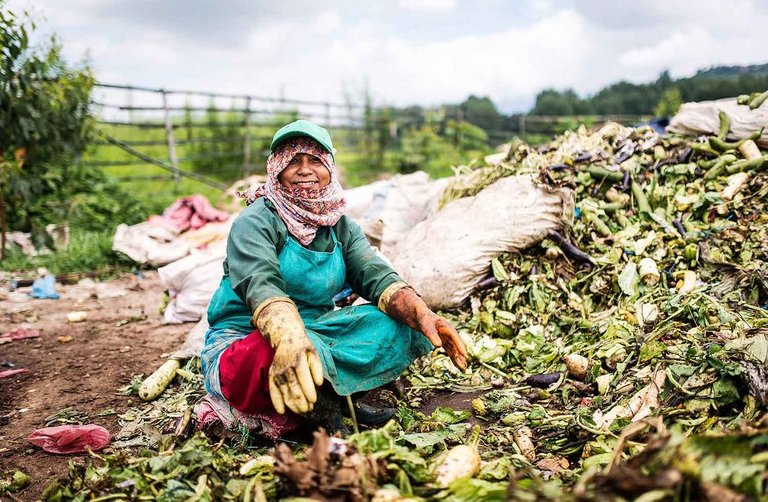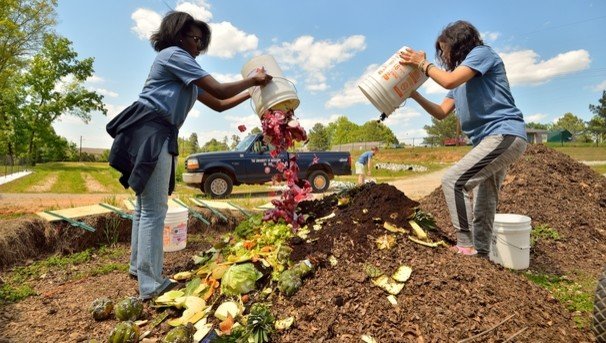Production of organic fertilizers as a sustainable alternative for agricultural waste management
Currently, millions of hectares of agricultural land worldwide have been negatively affected due to the indiscriminate use of chemical fertilizers used in the different farms due to poor land distribution.



▶ Part of the applied chemical fertilizer that is not used by the plant circulates in the environment, contaminating the soil and water bodies as a consequence causing a decrease in crop productivity, damage to ecosystems and loss of biodiversity due to changes in their habitat.

▶ Credits: biocycle. – [Image of Public Domain]
≕ I invite you to stay tuned and read my next contribution ≔
The production of organic fertilizers is a sustainable alternative for the management of agricultural waste and offers a different option to the use of chemical fertilizers to provide nutrients to the plant. Nutrients from organic fertilizers could reduce deficiency situations for plants or environmental contamination.
The quality of these fertilizers will depend on the organic material used in their production, so the greater the diversity of elements that give rise to the substrate, the higher the content of nutrients and microorganisms. There are different types of organic fertilizers, among which we can mention: surface compost, lombrihumus, bocashi, nutribora and green manures.
The red Californian earthworm humus (Eisenia foetida) is the result of the transformation of organic material of animal and vegetable origin, from the digestion process carried out by the earthworm. This fertilizer brings great benefits to soils because it improves their structure.

It makes them more permeable to water and air, and provides a high microbial load that restores the biological activity of the soil, which is why there is a need to evaluate the effect of the use of compost based on agricultural waste, household waste and earthworms in order to know its effect on crop production.
NOTE: Reference material.
0
0
0.000
Thank you
A useful article for the sustainability and progress of agriculture
Thank you, we should not let our guard down, expanding these topics will always be the best option to contribute and achieve sustainability.
Great content!
Although I don't discourage the use of 'chemical' fertilizers, I agree with its indiscriminate use especially with local farmers. It has become their magic potion, a part of their "add this and that" kit as a quick and easy means to have an abundant harvest.
The real problem is really the 'overuse' of the soil, the 'overproduction', and the extensive use of herbicides that makes the soil barren. Constant use of chemical fertilizers are just band-aid solutions to the worsening problem.
Aside from cover crops, rotational cropping, and other sustainable methods, using food waste as a long-term means to improve the soil is really an economical and sustainable option for farmers especially with rising cost of farm inputs.